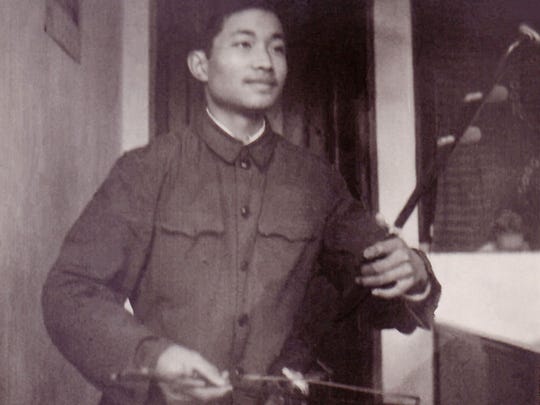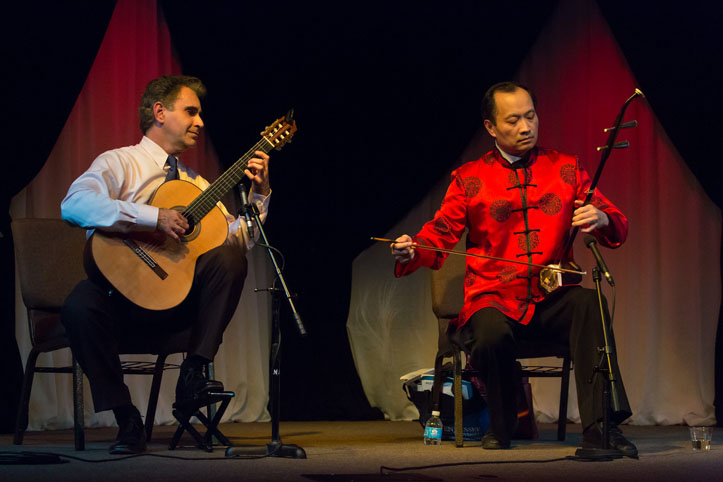Dr. Ming Wang is highly skilled at playing the Chinese violin (erhu), a two-stringed, traditional Chinese musical instrument.
 In 1974, Ming learned to play the erhu at age 14. When he finished junior high school as a straight A student, he was looking forward to attending high school and college, but instead, his education was completely terminated and he faced being sent away to labor camps for life, a devastating fate experienced by 20 million youths during 1966-1976. One of the ways to avoid this fate was to learn to play a musical instrument (such as the erhu) and learn to dance, since these skills allowed them to stay in the cities instead of being deported to labor camps.
In 1974, Ming learned to play the erhu at age 14. When he finished junior high school as a straight A student, he was looking forward to attending high school and college, but instead, his education was completely terminated and he faced being sent away to labor camps for life, a devastating fate experienced by 20 million youths during 1966-1976. One of the ways to avoid this fate was to learn to play a musical instrument (such as the erhu) and learn to dance, since these skills allowed them to stay in the cities instead of being deported to labor camps.
Dr. Wang’s favorite piece to play on his erhu is “Two Springs Reflect the Moon.” It was written by a blind erhu artist, A-bin. The song depicts a scene in which a person walks out to the bank of a lake at night, and sees the reflection of the moon on two converging springs of water. It is a beautiful and haunting piece, not only due to the natural beauty depicted in the piece, but because the beauty was imagined since the composer could not see. He was envisioning how beautiful it would be if he could actually see it, so the entire song is filled with sadness and unfulfilled longing and hope. At age 14, Ming should have been like any other teenager, looking forward to a life of possibilities, but instead he had to ponder a future where he would be relegated to the bottom of society. Since the erhu was his only hope for avoiding that fate, Ming resonates with the sad feelings of the blind composer when he plays this song because A-bin could not physically see, and Ming could not mentally see any future for himself.
In 1982 at the age of 21, Ming came to America with only $50, a student visa and an English-Chinese dictionary. He worked hard and eventually graduated from Harvard and MIT, and went on to became one of the few laser eye surgeons in the world today who holds a doctorate degree in laser physics.
Dr. Wang has never forgotten the erhu. He still plays the instrument regularly to express his appreciation to America and his love for Chinese art and culture.

